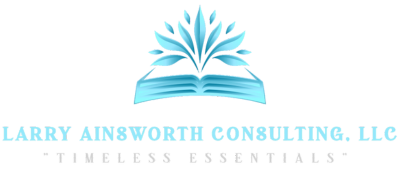ASSESSMENT LITERACY TO CREATE QUALITY ASSESSMENTS +
About the Assessment Literacy Introductory Session
Improving assessment literacy is crucial for educators to effectively gauge student learning, inform instruction, and ultimately improve educational outcomes for all students.
The foundation of assessment literacy is knowing the various types of assessments to determine which assessment type is most appropriate for a particular assessment need. Individual educators and/or collaborative grade- and course-level teams design the end-of-unit assessment to directly align with the “unwrapped” Essential Standards and their corresponding levels of rigor. They create questions themselves, select questions from district program assessment resources, and/or questions generated by A.I. apps. In this way, students’ responses will provide educators with reliable evidence as to the degree that students have achieved the full intent and rigor of the Essential Standards.
By blending assessment questions from both the selected-response and constructed-response formats—multiple-choice, short-response, and extended-response questions, respectively, along with the unit Essential Questions that students will respond to with their own Big Ideas—educators will create an assessment “photo album” that will capture all that students have learned during a unit of study.
Recommended Preparatory Workshop:
“Unwrap” the Essential Standards for Teacher Clarity
Participants in this Assessment Literacy Workshop will benefit from first experiencing how to “unwrap” Essential Standards as preparation for creating or selecting quality assessment questions directly aligned to the rigor, concepts, and skills of “unwrapped” Essential Standards.
What You Will Learn in This Introduction to Quality Assessment Design:
- See the “Big Picture” of the Integrated Teaching & Learning System©
- Why Educators Need Quality Assessment Questions
- Attributes of Quality End-of-Unit Assessments
- Foundations of Assessment Literacy
- Assessment For, Of, and As Learning
- Writing Assessment Questions in Multiple Formats
- Why Alignment of Questions to Rigor of Standards Is Critical
- Characteristics of and Roadblocks Effective Assessment Questions
- 10 Benefits to Improving Educators’ Assessment Literacy Skills* (See List Below)
10 Benefits to Improving Educators’ Assessment Literacy Skills
Enhanced Instructional Decision-Making
Better assessment literacy allows teachers to make more informed decisions about instruction based on accurate interpretations of student data.
Fairer and Accurate Evaluations
Increased assessment literacy helps ensure that student evaluations are fair, valid, and reliable.
Better Communication
Teachers can more effectively communicate student progress to students, parents, and administrators when they have strong assessment literacy.
Alignment With Standards
Improved assessment literacy helps teachers better align their assessments with standards and learning objectives.
Increased Ability to Provide Meaningful Feedback
Teachers with strong assessment literacy can provide more specific, actionable feedback to students.
Improved Unit Design
Strong assessment literacy skills help teachers create quality units of study that integrate assessment throughout the teaching and learning process.
Professional Growth
Improving assessment literacy contributes to overall professional development and can lead to more confident, effective teaching.
Increased Student Motivation
When assessments are well-designed and clearly communicated, students often feel more motivated and engaged in their learning.
Adaptation to Diverse Learning Needs
Improved assessment literacy helps teachers better adapt their methods to diverse student populations and learning styles.
Enhanced Ability to Use Technology in Assessment
As educational technology advances, assessment literacy helps teachers effectively integrate and use new assessment tools.
Virtual Session: One Hour Introduction
Can be Combined with Selected-Response Assessment Workshop and/or Constructed-Response Workshop
Who Should Attend
District and School Leaders, K-12 Classroom Educators, Content Area Coordinators and Specialists, Instructional Coaches
For More Information
VOLUME TWO: CREATING THE END-OF-UNIT ASSESSMENT
CHAPTER 9: Improve Assessment Literacy to Create Quality Assessments
